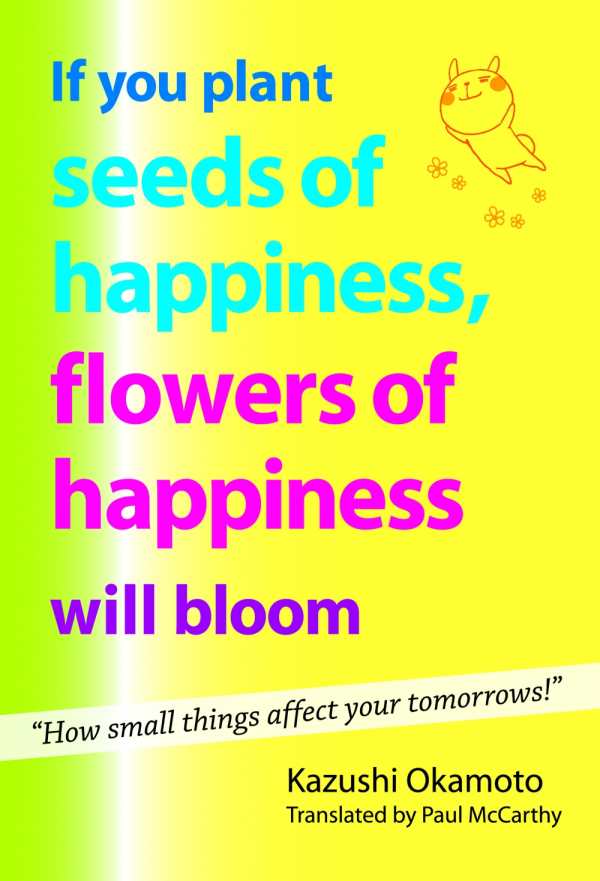
If You Plant Seeds of Happiness, Flowers of Happiness Will Bloom
How Small Things Affect Your Tomorrows
The essence of Buddhism is explained in this simply written yet powerfully positive book.
Kazushi Okamoto, a spiritual lecturer in Japan, has written a book that is a very pleasant ride through the tenets of Buddhism. Those unfamiliar with this spiritual and philosophical religion will find its principles, deftly explained by the author in simple language, to be positive and empowering.
The main thrust of the book centers around the Buddhist concept of sowing seeds, a powerful metaphor for actions and results. Okamoto writes that “all actions of body, speech, and mind can be called ‘seeds,’ so we really do sow many seeds each day.” Okamoto claims that all seeds eventually bear fruit, and that “there are no useless efforts whatsoever.” The notion of sowing seeds recurs throughout the book as Okamoto uses it to explain various aspects of what happens to individuals in life. He writes that Shakyamuni, the historical founder of modern-day Buddhism, “teaches that our actions possess the power to produce happy or unhappy states.”
Okamoto weaves vignettes into each short chapter to illustrate how one’s actions create happiness or unhappiness. One person, for example, seeks counsel from the author, telling him she feels isolated because her husband isn’t concerned about her, her children don’t understand her feelings, and her parents have done nothing to help her. Okamoto speaks with her and writes down both the negatives and positives she expresses about her life. He shows her the little things others actually do for the woman, advising her, “If you focus more on the things people have done for you and less on the times things didn’t go as you wished, your feelings will change very much for the better.” The woman says she will try looking at things “in a more positive light from now on” and leaves with a smile on her face. Little stories like this one perfectly complement the practical advice Okamoto shares.
Okamoto’s message is folksy and informal yet imbued with spiritual meaning and positive force. Light-hearted illustrations are interspersed throughout the book to further reinforce the text. Following Buddhist principles, Okamoto teaches that individuals are responsible for improving their own lives and achieving a state of happiness. Okamoto’s wisdom is timeless; in fact, his book may be best read with a highlighter at hand, since the reader is likely to want to savor and remember many of the author’s key points.
Reviewed by
Barry Silverstein
Disclosure: This article is not an endorsement, but a review. The publisher of this book provided free copies of the book to have their book reviewed by a professional reviewer. No fee was paid by the publisher for this review. Foreword Reviews only recommends books that we love. Foreword Magazine, Inc. is disclosing this in accordance with the Federal Trade Commission’s 16 CFR, Part 255.
